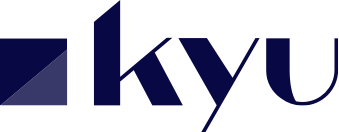
Persistent Underrepresentation of Women, Seniors, Migrants, and People with Disabilities
According to the 2025 ESDE Report (Employment and Social Developments in Europe), more than 50 million people remain excluded from the labour market in EU member states. A significant share of this population belongs to groups that continue to be underrepresented in employment and often face hiring discrimination:
- Women, hindered by a strong gender-based division of labour (the burden of unpaid care work, limited access to childcare) and by fiscal and social disincentives.
- Seniors (55+), whose access to employment is limited by retirement regulations, health issues, or organisational inflexibility.
- Migrants, facing language barriers, lack of recognition of qualifications, and entry-level hiring discrimination.
- People with disabilities, who too often encounter workplaces that are insufficiently adapted to their needs.
The study emphasises that improving access to employment for these groups is one of the main levers to address skilled labour shortages in certain sectors (transportation and storage; accommodation and food; agriculture…) and to counterbalance the projected demographic decline of the workforce by 2050.
Beyond public policies (improved childcare services, systems for skills recognition, etc.), the report highlights the pivotal role of companies in both integrating and retaining these workers.
Diversity and Inclusion (D&I): A Strategic Asset for Businesses
What do we mean by diversity and inclusion?
- Diversity refers to the variety of employee profiles within an organisation (skills, career paths, cultural backgrounds, etc.).
- Inclusion describes an organisation’s ability to foster a workplace environment that respects and values all employees, regardless of their differences.
An ambitious D&I policy produces tangible benefits, whereas the absence of such a policy can harm workplace climate:
- Attractiveness: Companies engaged in D&I strengthen their reputation and attract talent more easily. In fact, 8 out of 10 candidates consider an employer’s social commitments before accepting a job offer (Cegos 2025).
- Retention: A solid D&I policy enhances employee engagement and nurtures a sense of belonging.
- Collective Performance: Leveraging diverse skills and experiences fosters creativity and innovation, translating into stronger economic performance compared to less committed companies.
Good Practices in Diversity and Inclusion
Organisations are increasingly recognising the strategic importance of D&I policies, which directly contribute to enhancing the employer brand, i.e. improving attractiveness and retention.
To advance and strengthen D&I strategies, targeted actions can be implemented at three key stages of the employee journey, as identified by the KYU x Learning Boost barometer (https://www.kyu.fr/mesurer-l-inclusivite-des-pratiques-des-entreprises/) :
- During recruitment: introducing quota policies, widening recruitment channels to reach diverse profiles, and applying transparent and objective selection criteria.
- During onboarding: fostering an inclusive culture, ensuring non-discrimination regarding parental responsibilities (particularly for women), adopting a zero-tolerance policy toward discrimination, and adapting the work environment to support the inclusion of people with disabilities.
- Through training: raising awareness and ensuring commitment across all staff, particularly managers, to embed inclusive practices sustainably.
However, despite the benefits of D&I, the Cegos 2025 International Barometer shows that discrimination (based on age, origin, appearance, gender, or sexual orientation) remains prevalent and continues to hinder genuine inclusion.
Diversity and Inclusion: GEPP as a lever
Designing internal training and career paths (GEPP – Gestion des Emplois et des Parcours Professionnels) serves as a strategic tool for companies.
Through its forward-looking approach and structured reflection on internal skills and career paths, GEPP helps to:
- Identify critical occupations where recruitment can be diversified.
- Address HR challenges such as high turnover, training needs for older employees, or gender imbalances.
- Develop solutions grounded in inclusive policies and improved quality of working life and conditions (QVCT – Qualité de Vie et des Conditions de Travail).
At KYU, we support organisations in structuring their HR policies and strengthening their employer brand through the implementation of effective diversity and inclusion strategies and the continuous improvement of working conditions and employee wellbeing.
N.B.: A joint conference organised by the European Commission and the European Economic and Social Committee, entitled “Building Tomorrow’s Workforce: Inclusive Participation and Quality Jobs for a Competitive Europe”, will take place on 13 November 2025 in Brussels. https://employment-social-affairs.ec.europa.eu/building-workforce-tomorrow-inclusive-participation-and-quality-jobs-competitive-europe-2025-11-13_en
Sources
- Cegos (2025). Etude internationale Cegos : Diversité et inclusion.
- European Commission (2025, September 16). Women, older people, migrants and persons with disabilities key to tackling EU skills and labour shortages.


